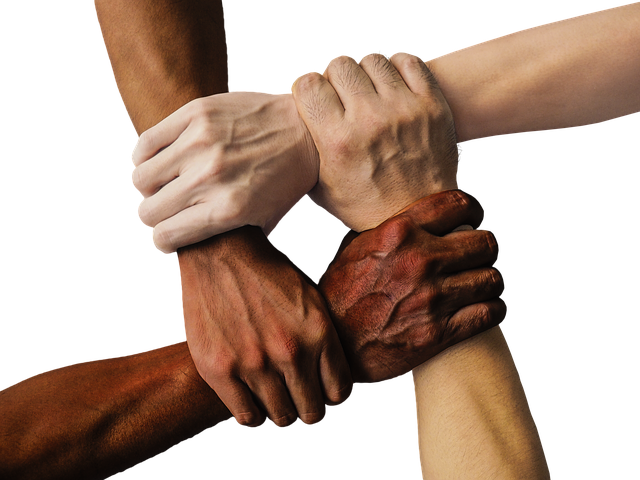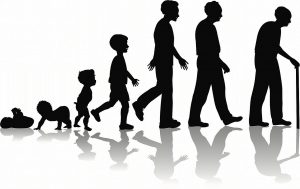
It was an unseasonably mild summer day July 4, 1776, in Philadelphia when the Continental Congress formally adopted the Declaration of Independence. After years of tolerating what were seen as unjust laws and taxes imposed on the North American colonies by Great Britain, people living in what would become the United States had had enough and were ready to break away as a free nation.
The document’s primary author Thomas Jefferson wrote: “We hold these truths to be self-evident, that all men are created equal, that they are endowed by their Creator with certain unalienable rights, that among these are life, liberty and the pursuit of happiness.”
With this line, Jefferson — widely considered to be amongst the most intelligent men in United States history — essentially established the foundational logic supporting America’s action to leave.
In his estimation, the equality of all humans requires no proving because it is, ultimately, self-evident.
Hence, if the inherent rights of men are ever threatened or stifled, it is wholly justified to do what is necessary to defend those rights.
Of course, being the slave owner he was, Jefferson fell glaringly short of living up to the lofty ideal he espoused in the Declaration.
Because the principle itself, outside of the man who wrote it, stands so potently on its own, most civil liberty battles fought since the Declaration’s passing have been entrenched with Jefferson’s words of equality. From segregation to women’s suffrage to the LGBTQ movement, this idea of equality has been the philosophical bedrock supporting numerous human rights battles for hundreds of years.
But what does it mean to be equal?
Empirically speaking, no one is equal. Everyone is different in some way or another — be it in intellectual capacity, physical prowess, bodily attractiveness, creative ability, etc. No two people are perfectly the same, what to speak of every person in the world.
Because Jefferson’s words cannot be supported through empiricism, his statement of equality is intrinsically a metaphysical one. It is not the body, but something that cannot be seen within the body that makes every person equal.
This unseen phenomenon is the atman (soul, inner self, spirit), according to the Bhagavad Gita.
Though we inhabit the body, we are not the body, the Gita asserts. The fundamental teaching that we are all spirit, thus, creates a singular unity amongst all living creatures.
The divinity of the soul is a person’s true self. Overly identifying with the temporary body, however, creates a false ego or false sense of self. Becoming too engrossed in bodily identification can also make people forget everyone is originally spiritual in nature. This forgetfulness is what leads to countless conflicts in the world.
Forgetfulness of the soul’s nature is due to a lack of knowledge, and in the absence of knowledge there is ignorance.
Ignorance is like a darkness that shrouds the vision, creating fear of the unknown. Fear can cause anger and greed, which often results in a violence that reduces people down to their most tribalistic propensities.
The term tribalism might make one think of hunters and gatherers of the past, or indigenous peoples of the rainforest. It might even spur thoughts of humanity’s intrinsic ties to race or religion. But partisan politics is capable of becoming just as tribal as anything else.
A dictionary definition of tribalism is “strong loyalty to one’s own tribe, party, or group.”
Strong loyalty is usually considered a very positive quality in a person. But what if that loyalty becomes blind? What happens when the feeling of loyalty is so strong in a person that he or she will go so far as to support a particular group, regardless of what that group does?
American politics has become a perfect example of this type of blind loyalty.
The current political climate is fueled by a system in which there are two predominating parties that hold hard-line stances on all the major issues. To have any sort of relevant political career, a person has to pick one side or the other, and is practically ostracized if he or she deviates from any of that party’s stances.
Filtering into and saturating American culture, a party requires loyalty, rewarding followers with a shelter of identity and belonging. Working or advocating for the party, people lose their individuality, aligning their own thoughts with the party’s thoughts. Politics becomes an everlasting war in which the boundaries of decent human behavior become blurred.
The founding fathers were cognizant of this type of possible division and even warned about it.
John Adams once wrote: “There is nothing I dread so much as a division of the republic into two great parties, each arranged under its leader, and concerting measures in opposition to each other. This, in my humble apprehension, is to be dreaded as the greatest political evil under our constitution.”
And in his farewell address, in reference to the “spirit of party,” George Washington said: “It agitates the community with ill-founded jealousies and false alarms, kindles the animosity of one part against another, foments occasionally riot and insurrection.”
This animosity is, unfortunately, exacerbated today through social media.
Mediums like Twitter and Facebook provide, like never before in history, platforms for people to not only say what they feel, but to often say it with little to no civility. And because the loudest people on social media are generally the most passionate and extreme, the America portrayed on the internet is inevitably one of deep polarization.
But the America portrayed on the internet does not represent all of America.
According to a 2016 survey by the Pew Research Center, 83 percent of social media users say they usually try to ignore a friend’s post that is about a political issue they disagree with.
This means the majority of political outrage and hate seen online comes from a very small percentage of social media users.
It is important people become aware of this fact, so as not to let this small percentage heavily affect how they interact with the rest of the world. Becoming excessively wary of other people based on social media divides humanity, preventing meaningful relationships from forming or deepening.
These relationships are as important now as they ever have been.
In a nearly 80-year-long study tracking the lives of 724 men since 1938, Harvard found the leading cause for a happy and healthy life wasn’t fame or money, but the connections between people. The director of the study, Dr. Robert Waldinger, discussed the studies findings in a 2015 Ted talk.
“The clearest message we get from this 75-year study is this: Good relationships keep us happier and healthier,” Waldinger said. “Period.”
Waldinger went on to say people who are more socially connected to their friends, family, and community are happier, physically healthier, and live longer lives than those who are less well-connected.
The more deeply we connect to people, the better our lives will become.
Real person to person connection forms, however, not simply by shaking hands and saying hello, but by finding true commonality.
And however big people’s external differences might be, a true commonality can always be found when we live with the understanding that we are all the soul. This realization dispels ignorance, allowing us to see anyone we encounter as belonging to the same spiritual family.
Having this realization should make a person more aware of other people’s struggles, igniting in that person an empathy that will compel them to help those who need it. By helping others we are serving them, and service is the active expression of love.
It seems ironic, but those who strive to give the most happiness are generally the ones who experience the most of it.
Simply put, love, not tribalism, is what brings true joy.







































